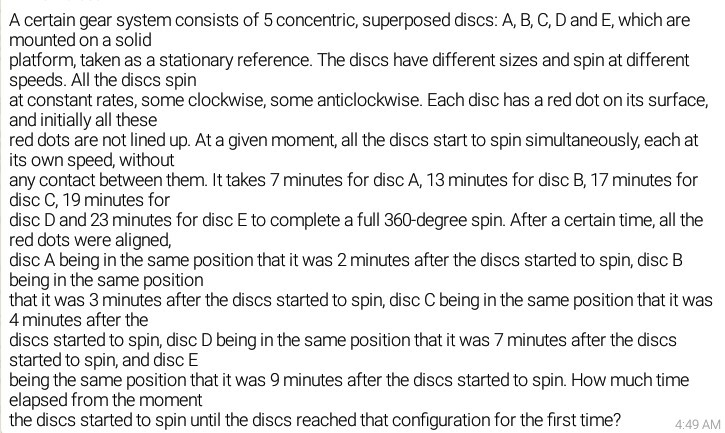
Question and Answers Forum
AlgebraQuestion and Answers: Page 299







Pg 294 Pg 295 Pg 296 Pg 297 Pg 298 Pg 299 Pg 300 Pg 301 Pg 302 Pg 303
|
Question and Answers Forum |
AlgebraQuestion and Answers: Page 299 |
| Solve for x in terms of a (√(a−(√(a+x )))) + (√(a+(√(a−x)))) = 2x Please sir i request you to solve this question =_= |
| if sin(x) = ((x − 20)/(20)) , find x |
| can we find an exact solution? t^6 +4t^4 −12t^3 +24t^2 −24t+8=0 |
| What is the sum of first 3n term of an AP , if the sunm of first n term is 2n and sum of first 2n term is 5n |
| The 2nd, 4th and 8th term of an AP are the consecutive term of a GP. If the sum of the 3rd and 4th term of the AP is 20. Find the sum of the first four terms of the AP. |
| Please what does the 2 on the C mean. C_1 ^2 + 2 C_2 ^2 + 3 C_3 ^2 + ... + n C_n ^2 = (((2n − 1)!)/([(n − 1)!]^2 )) Does the 2 on C mean square ?? I mean: (C_1 )^2 + 2(C_2 )^2 + 3(C_3 )^2 + ... + n (C_n )^2 which is also ( ^n C_1 )^2 + 2( ^n C_2 )^2 + 3( ^n C_3 )^2 + ... + n ( ^n C_n )^2 I just want to know what the 2 on C represent . Thanks. C_1 ^2 + 2 C_2 ^2 + 3 C_3 ^2 + ... + n C_n ^2 = (((2n − 1)!)/([(n − 1)!]^2 )) |
| Solve for x, y, z x(y + z) = 33 ..... (i) y(z + x) = 35 ..... (ii) z(x + y) = 14 ..... (iii) |
| Find x: x^x = 2x |
| if x+(1/x)=(√3).find x^(24) +x^(18) +x^6 +1 |

|
| (x^4 −3x^2 +2x+1)/(x−1) |
| V=(4/3)𝛑R^3 prove |
| S=4𝛑R^2 prove |

|
| Find the product of the real roots of the equation (x + 2 + (√(x^2 + 4x + 3)))^5 − 32(x + 2 − (√(x^2 + 4x + 3)))^5 = 31 |
| solve for x (√(a−(√(a+x)))) + (√(a+(√(a−x)))) = 2x |

|
| If A, B, C are angle of a triangle. Show that cos (1/2)C + cos (1/2)(A − B) = 2 sin (1/2)A sin (1/2)B |
| let A = ((( 1 1)),((1 1)) ) 1)calculate A^n 2) determine e^A and e^(−A) . |
| let A = (((1 1)),((−2 3)) ) 1) find A^(−1) 2) calculate A^n 3) determine e^A and e^(−2A) . |

|

|

|
| Sum the series: ^n C_0 ^n C_1 + ^n C_1 ^n C_2 + ^n C_2 ^n C_3 + ... + ^n C_r ^n C_(r + 1) |
| n ∈ Z^+ , Find the coefficient of x^(−1) in the expansion of (1 + x)^n (1 + (1/x))^n |

|
Pg 294 Pg 295 Pg 296 Pg 297 Pg 298 Pg 299 Pg 300 Pg 301 Pg 302 Pg 303 |